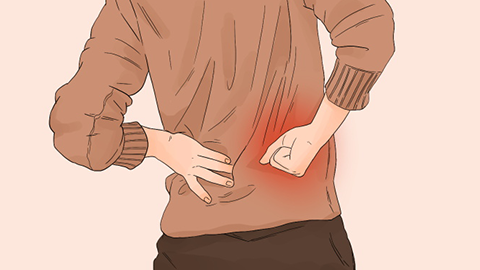What should be done about recurrent episodes of rheumatoid arthritis?
Rheumatoid arthritis may recur repeatedly due to various reasons, including inadequate warmth protection, irregular medication use, worsening synovial inflammation in the joints, coexisting infections, or progressive joint structural damage. It is recommended to seek timely medical attention, identify the underlying cause, and improve symptoms under a doctor's guidance through general management, medications, surgery, or other treatments. The specific causes are analyzed as follows:

1. Inadequate warmth protection: Prolonged exposure of joints in areas such as hands and feet to cold and damp environments can cause blood vessel constriction, stimulating the release of inflammatory factors and triggering recurrent symptoms. Daily precautions should include keeping joints warm; wearing wrist guards or knee supports when going outdoors, avoiding contact with cold water, and using dehumidifiers during humid weather to maintain a dry indoor environment and reduce environmental irritation to the joints.
2. Irregular medication use: Self-adjusting dosages or stopping medications without medical advice may lead to insufficient drug levels in the body, resulting in uncontrolled inflammation and symptom recurrence. It is essential to strictly follow medical instructions regarding dosage and timing of medications, avoid altering treatment plans independently, and attend regular follow-up visits so that doctors can adjust medications according to disease progression and maintain stable therapeutic effects.
3. Worsening joint synovial inflammation: Persistent stimulation by inflammatory factors leads to synovial hyperplasia and congestion, causing recurrent joint swelling, pain, and significant limitation of movement. Patients should take medications such as methotrexate tablets, leflunomide tablets, or etoricoxib tablets as prescribed to suppress inflammatory responses and relieve joint discomfort.
4. Coexisting infection: Infectious conditions such as colds or respiratory tract infections can activate the immune system and trigger rheumatoid arthritis flare-ups, often accompanied by symptoms like fever and fatigue. During infection, it is important to follow medical advice and use antibiotics such as amoxicillin capsules, cefuroxime axetil tablets, or azithromycin capsules to control the infection.
5. Progressive joint structural damage: Uncontrolled chronic inflammation can damage joint cartilage and bone, reducing joint stability and increasing the risk of recurrent symptoms, potentially leading to joint deformities. Besides medication, severe cases may require arthroscopic synovectomy to remove diseased synovial tissue, reduce joint inflammation and destruction, and slow disease progression.
In daily life, maintaining a regular routine, avoiding late nights and excessive fatigue, and consuming adequate protein and calcium in the diet can help strengthen overall immunity. Engaging in moderate joint function exercises such as walking or tai chi helps maintain joint mobility, reduces the impact of recurrent symptoms on daily life, and promotes long-term joint health.








